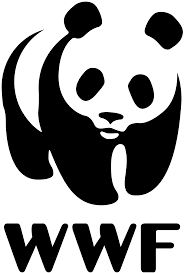Chemycal has been acquired by 3E
Learn MoreChemycal has been acquired by 3E
Learn MoreDiscover how Chemycal PRO helps you boosting your regulatory monitoring:

WWF, in collaboration with various stakeholders, has conducted a benchmarking exercise to assess the effectiveness of sustainability standards used in cotton production. The study aimed to provide users of these standards with a comprehensive understanding of their strengths and weaknesses in addressing specific sustainability issues.
The benchmarking exercise evaluated six prominent cotton standards: Better Cotton Initiative (Small, Medium, and Large Farm criteria), Cotton Made in Africa, FairTrade International Small Producer Organization Standard with Fiber Crop Criteria, USDA National Organic Program, EU Organic Program, and India National Program for Organic Production. While other standards also exist, they were not included in this particular assessment.
It is important to note that the objective of this exercise was not to rank the standards or determine which one is superior or inferior in terms of sustainability. The study aimed to highlight the nuanced strengths and limitations of each standard, enabling users to make informed decisions regarding their applicability and utility.
Several key conclusions emerged from the benchmarking exercise. Firstly, no standard was found to be flawless; each standard exhibited varying degrees of coverage for the selected sustainability criteria. In other words, no single standard encompassed all the sustainability issues addressed in this assessment. Secondly, room for improvement was identified in all standards, even those that demonstrated robust coverage of specific sustainability issues. Enhancing the criteria of these standards can further strengthen their effectiveness.
Furthermore, it was observed that different standards prioritize and address diverse needs and issues. Each standard exhibits variations in its coverage of sustainability issues, with some performing better or worse than others in specific areas. Additionally, the study emphasized that the quality of implementation plays a crucial role in achieving sustainable outcomes, highlighting the significance of effective execution alongside adherence to the standards.
The findings carry important implications. It is imperative to understand that certification to a specific standard does not automatically equate to overall sustainability. Each standard operates within its own scope, approach, and level of implementation. Consequently, a one-size-fits-all approach is inadequate for achieving sustainability objectives.
Users, including consumers, brands, and retailers, should be well-informed about the strengths and limitations of each standard in addressing specific sustainability objectives. By recognizing the unique attributes of different standards, stakeholders can better utilize them as tools in their sustainability efforts.
Moreover, it is crucial to support standards in their ongoing quest for improvement. Continuous enhancements to these standards will contribute to their robustness and effectiveness over time. Therefore, users and stakeholders should actively advocate for their development and advancement.
Lastly, it is important to acknowledge that standards alone are not sufficient to achieve widespread sustainability in the cotton production sector. Additional approaches, tools, and collaboration between various actors are essential for a comprehensive transformation towards sustainability.
In summary, the benchmarking exercise conducted by WWF sheds light on the strengths, weaknesses, and unique attributes of various sustainability standards used in cotton production. It emphasizes the need for a nuanced understanding of these standards, supports continuous improvement, and emphasizes the importance of complementing standards with other approaches for a sustainable future in the industry.
MORE INFO ON wwf.panda.org
2013 © MyChemicalMonitoring. ALL Rights Reserved. About Us | Terms and Conditions